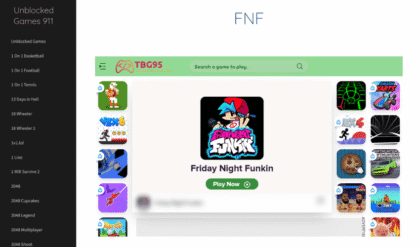A Guide to Teen Slang: KYS
The language of teenagers changes rapidly. It is similar to chasing a wave, you have to blink, and it passes. You can say that everybody is lit one minute. The one after that there is a new phrase showing up so that parents, teachers, and even some teens are rubbing their eyes in doubt. KYS is one of those acronyms that have left their trail in text messages and on social media, which have brought to the surface confusion and even worry. What does KYS stand for in texting then? What is the importance of this? Let us analyze it.

The Meaning of KYS
KYS is an acronym of “Kill Yourself”. Harsh, right? The term is not new in cyberspaces, being casually dropped in texts, in game chats, or in the social networking feeds. Fundamentally, it is a straight forward violent phrase. At other times it is a vile insult, and intends to wound or incite. In other occasions, adolescents may simply discard it off the hand just like a black joke amongst the same. It is all about context.
The phrase is not recent. It arose during the dawn of internet forums and gaming communities where edgy and provocative words tend to flourish. However, the texting was adopted as the most popular method to text, KYS went into their lingo drawers. It is concise, to the point, and does not fit well in the digital conversation, which is very fast-paced. However, the meaning can vary according to whom it is said and the context at a time.
Why Teens Use KYS
Usually, teens do not mean when they use the abbreviation KYS and type KYS that they are literally asking someone to kill themselves. It is used hyperbolically most of the time to show frustration or annoyance. Think of this: an adolescent is defeated in a game of the online community. Their friend could even send a text: KYS you noob! It is not a serious appeal to hurt, it is rather like turning around and telling someone, Ugh, you goofed bad! Nevertheless, the force of the phrase might surprise anyone, who is not in on the situation.
Slangs such as KYS are successful since teenagers enjoy crossing the boundaries. They are in the process of discovering their identity, telling what is acceptable to say, establishing their own way to express themselves. It is something to connect them to friends or exercise their smartness in their group chats. But the thing is that what someone may find funny someone else may consider as a blow. And there is where things get sticky.
The Dark Side of KYS
No need to mince words, KYS can be dangerous. Its connotation is heavy and it is a weapon when used by the wrong people. The thing of cyberbullying is not imaginary. Teens (and adults) have also used KYS to bully or humiliate others when they have become heated during an online discussion. Someone who already has issues with their mental health will especially take it when reading KYS on a text or comment. It does not only involve words on the screen- it may be personal.
Research indicates that adolescents are the most susceptible to the phenomenon of online bullying. The Cyberbullying Research Center report revealed the worldwide rate of the occurrence of cyberbullying in teens of more than 40 percent. When such phrases as KYS are used finding motivation, this is part of that. Although the sender might have conveyed this as a joke, the receiver may not call it that. Not everything is translated in text in terms of tone.
Here is one more layer: mental health. Suicide rates among teens have been increasing. CDC reported that suicide was a primary cause of death among the youth between 10-24 years. Any easy use of such phrases like KYS might lead to the popularization of bad things. It is the razor between black comedy and irresponsible thoughtlessness.
Context Matters
Then, does KYS always bad? Not necessarily. The teens tend to use it jokingly among close friends that understand the vibe. As a matter of example, a person could type in a group chat, I forgot to do my homework again, KYS me. In this instance they are not taunting, they are only picking on themselves. It is as though, saying, I am a great “chump”,–despairing, chummy.
Context is a clever way. Besties can avoid anything that might not be good for the other person. What if a child sends a KYS to a member of their class they barely know? The listener might feel offended or confused, especially if they don’t know the slang. And when applied in a public place, like X or a game-hosting site, where there are people who don’t know each other, KYS can create tension in no time.
This is something that adults usually do not pick up. KYS may appear in the text of a teen and be used by the parent or the teacher to panic thinking that this is a red flag. In some cases, it is. In other cases, it is merely slang being slang, that is, being edgy and off limits to those without the secret knowledge. The key is in the difference.
How KYS Fits into Teen Slang Culture
The world of teen slang exists in itself. It is the creativity of texting and use of social media, defiance, and short hand. The acronym such as LOL, SMH, or YOLO gave rise to such notions like KYS. They are fast, snappy, and hit any audience straight to the heart. Their usage by teens is an expression of group identity or a stand out in a crowded digital world.
KYS is not the only one to be edgy. Those are only some of the other negatively charged terms used as slang; they include L (meaning loss) or ratioed (when a post receives more comments criticizing it than likes). Such words help teenagers reveal grand emotions: anger, embarrassment, or a joke in only several letters. It’s efficient. It’s expressive. And it belongs to theirs.
This is kindled by social media. New slang is being bred on such platforms as X, TikTok, and Discord. A term is able to make the transition between a random post and a worldwide hype in a span of days. An example of this can be seen through the instances of KYS which was disseminated via the gaming community, such as Fortnite and Call of Duty, where the aspect of trash-talking is a norm. There it went to group chats and further on.
What Parents and Adults Should Know
As a parent, it is KYS that may cast alarms in your head when you see it in the text messages of your teenager. At least, do not press the panic button yet. First inspect the circumstances. Is it just a friend’s joke? Or does it fall in a pattern of poor interactions? Communicate with your adolescent. Show non-judgmental questions. The question of “Hey, I could see this on your texts, what is it about?” will open the door rather ineffectively compared to the one of “Why are you saying this?!”
It is all about education. Train teens that what they say is heavy even in informal situations. A way that schools can assist is through classroom education of cyberbullying and mental health. Parents can use such programs as Common-Sense Media to help them move through these discussions. It is not about creating awareness and closing the door to communication.
And when something makes you concerned over the mental health of a teen, do not just look out through slang. Are they retiring? Feeling depressed or in an anxious temper? Those are red flags, in themselves, more than just one acronym. In case KYS appears related to bullying like misery, intervene. Contact a counselor or a close adult.
The Bigger Picture: Language and Responsibility
KYS is only a part of much bigger puzzle. Slang used by teens shows the way they express themselves in their lives and relationships and how they use the internet. It is sloppy, daring and even reckless, but such is the growing up. The issue is whether you strike some balance between freedom of expression and responsibility. The teenagers require room to test with language, as well as to comprehend the implications of such language.
To grown-ups, it is more about wondering rather than domination. Find out the slang. Ask questions. Stay on top of websites such as X, whereby trends move swiftly. In case of teens, it is thought before you type. A KYS can seem funny at the time but it may sit in mind of a person a long time.
Moving Forward
Slangs such as KYS will not go away. It will change as the groovy term did and as the lit term will do. The internet is moving at a fast pace that nothing will remain constant. However, when one learns to understand things such as KYS, the gap between adolescents and adults becomes closed. It is not only decoding the letters but decoding what people are going to do, how they are going to feel and world teens are going to live in.
Therefore, the next time the KYS comes to your screen, think through it. Put yourself in perspective. Is this a hoax? A jab? A Call of distress? Communicate. Listen. Because there is a person behind every acronym, who wants to say something. And sometimes that is all they need is someone to listen.





